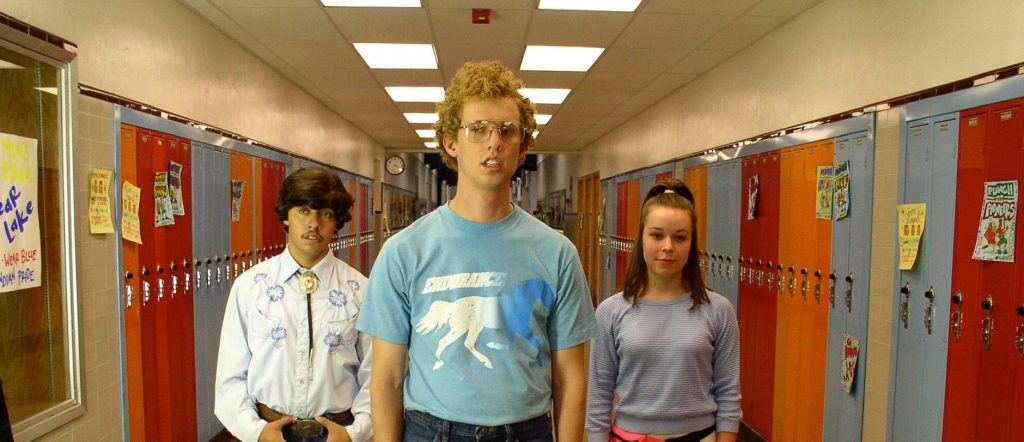Podcast Summary
Following children from birth to adulthood reveals how childhood experiences shape later life: Longitudinal studies show that childhood factors like aggression, shyness, and childcare quality impact adult outcomes, but not all children with these behaviors will experience the same outcomes, and genetic factors and childcare quality also play a role in development.
Longitudinal studies, which follow children from birth and track them into adulthood, provide valuable insights into how childhood experiences shape later life. Professors Jay Belsky and Terry Moffitt, authors of "The Origins of You," have conducted such research for decades. Their studies, which include the Dunedin Study in New Zealand and the NICHD Child Care Study, have shown that childhood factors like aggressiveness, shyness, and childcare quality can significantly impact adult outcomes. Memories of childhood experiences can change over time, but these studies provide a more accurate understanding of the role of childhood in shaping later life. For instance, childhood aggression and shyness can lead to negative outcomes in adulthood, but not all children who exhibit these behaviors will experience the same outcomes. The quality of childcare and genetic factors also play a role in development. By following children from birth to adulthood, researchers can gain a more comprehensive understanding of the complex relationship between childhood and later life.
Consistent funding crucial for long-term research studies: Childhood temperament's impact on adult life is complex, with some traits influencing later behaviors while others may not follow the same pattern. Understanding this relationship requires recognizing the intricacy of human development and seeking heterotypic continuity.
That the success of long-term research studies, like the Dunedin study, heavily relies on consistent funding. Researchers must continuously pitch their projects to funding agencies and adapt their research focus as people age. Regarding the impact of childhood temperament on adult life, the research shows that it's a complex issue. While some traits, like shyness, may influence later behaviors, such as marital stability, others, like aggression, may not necessarily follow the same pattern. Instead, developmental psychologists look for heterotypic continuity, which means the relationship between childhood and adulthood doesn't have to be one-to-one but can be seen in the roots of adult behaviors. For example, a shy child might grow up to be an adult who is careful in relationships. Conversely, an aggressive child might not necessarily carry that behavior into adulthood. Ultimately, understanding the complex relationship between childhood temperament and adult life requires recognizing the intricacy of human development.
Early Childhood Behavior and Long-Term Consequences: Children exhibiting extreme aggression in early childhood are more likely to face challenges in adulthood such as criminal activities, strained relationships, and educational and employment difficulties. Early intervention is crucial for preventing negative outcomes.
The behavior of young children, particularly those who exhibit aggression and bad behavior across various settings and sustain it over many years, can have negative consequences in adulthood. These individuals are more likely to engage in criminal activities, have strained relationships, and face challenges in education and employment. The origins of these behaviors can be traced back to early childhood, and the continuity of these behaviors into adulthood is influenced by the feedback and environment the child creates for themselves. It's important to recognize that most children's temperament falls somewhere in the middle between extreme timidity and extreme aggressiveness, and early intervention is crucial for those who are outliers to prevent negative outcomes. The adults around these children play a significant role in shaping their development through their responses and the environment they create.
Early intervention is essential but not hopeless if started later: Early intervention is crucial for addressing developmental issues, but it's never too late to make a positive impact, and the effectiveness of intervention depends on the issue and age.
Early intervention is crucial in addressing various developmental issues, as it can prevent small problems from snowballing into larger ones. However, it doesn't mean that intervention is hopeless if started later. The age of intervention depends on the type and nature of the intervention. For instance, children with attention deficit hyperactivity disorder (ADHD) may face negative consequences if not treated early, but some individuals have shown that their lives can be turned around even in their late teens. The marshmallow test, a popular test of self-control, is just one indicator of self-control and doesn't necessarily predict a child's future. Longitudinal studies, which involve tracking children's self-control styles over several years, provide a more comprehensive understanding of self-control development. Ultimately, early intervention is essential, but it's never too late to make a positive impact.
Early self-control influences various aspects of life: Children with strong self-control at a young age have advantages in life, but it's not solely determined by inborn factors. Environmental influences and developmental experiences also play significant roles. Preventing mistakes in adolescence is crucial for a better future.
Self-control developed in early childhood significantly influences various aspects of an individual's life, including their assets, occupations, health, and aging. The children who exhibited the best self-control as three-year-olds and five-year-olds now have the most advantages in life, while those with poor self-control face more challenges. However, it's essential to recognize that self-control is not solely determined by inborn factors. Environmental influences and developmental experiences play significant roles. The consequences of early self-control or the lack thereof should not be mistaken for the cause. Moreover, self-control in the second decade of life, specifically from ages 10 to 20, can have a more substantial impact on an individual's future, as it's the period when addictions and criminal behavior often start. Therefore, preventing teenage mistakes, such as substance abuse, unplanned pregnancies, and dropping out of school, is crucial for ensuring a better future. Interventions, such as Head Start, can help build self-control in young children, while adolescence is another critical time for intervention to prevent negative outcomes.
Teenage mistakes don't always lead to negative outcomes in adulthood: Despite the predictive power of childhood behaviors, many children who face challenges early on do not end up with poor adult outcomes due to protective factors or buffering processes.
While mistakes made during the teenage years can significantly impact adult outcomes, not all children who face challenges in their early years will experience negative outcomes in adulthood. Behavioral scientists often emphasize the predictive power of childhood behaviors, but the majority of children who struggle early on do not end up with poor adult outcomes. This is due to what researchers call "lawful discontinuity," where protective factors or buffering processes can prevent negative outcomes. For example, a supportive family can reduce the negative effects of bullying on a child's mental health and obesity. It's important to note that resilience is not solely attributed to the child, but rather the ecology in which they are growing up. Additionally, researchers have found that children who are already withdrawn, timid, and fearful are more likely to be targeted by bullies. Understanding these complexities can provide hope and encouragement for families.
Bullies seek pseudo status through targeting the weak: Bullies aren't genuinely tough, instead, they target the vulnerable for false power. Children exhibiting aggressive behavior early on might become bullies, but not all will have antisocial futures. Distinguishing between chronic troublemakers and those going through a rebellious phase is crucial for the juvenile justice system.
Bullies are not true tough guys but rather pick on those who won't fight back. Children who exhibit aggressive behavior from a young age, such as biting, kicking, and stealing, are more likely to become bullies. However, not all children with aggression problems will have an antisocial lifestyle as adults. Some may just go through a rebellious phase during adolescence. It's essential to differentiate between children who have been causing trouble from the start and those who have recently gone off the rails. The juvenile justice system should take this into account and divert children with a good future ahead of them away from criminal charges and records. In essence, bullies seek pseudo status and power by targeting the weak, and aggressive behavior in children can be a sign of future bullying. Not all children who act out during adolescence will become lifelong criminals.
The impact of childcare on child development: High-quality childcare can enhance cognitive and language development, but negative outcomes like aggression and impulsivity may occur when childcare replaces a strong family foundation. Societal policies and family structures play a crucial role in mitigating these risks.
The quality and quantity of childcare a child experiences from a young age can have an impact on their cognitive and language development, as well as their behavior later in life. However, it's important to keep in mind that the effects of childcare should be considered in the context of the broader ecology, including the quality of family life and societal policies. The research suggests that the negative outcomes associated with childcare, such as aggression and impulsivity, are more likely to occur when childcare is of lower quality or when it replaces a strong family foundation. Conversely, in societies with robust childcare systems and supportive family structures, such as Norway, the negative outcomes are minimized. Therefore, the focus should be on improving the quality of childcare and strengthening family foundations to ensure the best possible outcomes for children.
Daycare's Impact on Children's Development: Quality Matters: Quality daycare can support children's development, but early attendance and lack of family support may lead to negative effects. Genetics also play a role, but in interaction with environmental factors.
The impact of daycare on children's development depends on various factors, including the quality of care and the age at which they start attending. American children, who often begin daycare soon after birth, may experience negative effects such as increased aggressiveness and disobedience. Conversely, children in countries like Norway, where parents receive extended parental leave, have less daycare attendance and seem to avoid these negative outcomes. However, even if children must attend daycare, a supportive family life can help mitigate potential negative effects. Additionally, the influence of genetics on children's development is complex and interacts with environmental factors. Early studies focusing on specific genes, like MAOA and the serotonin transporter gene, showed that these genes had little effect on outcomes unless children were exposed to adverse home environments. The field has since moved towards genome-wide association studies, recognizing that one gene cannot determine human behavior alone. Overall, the impact of daycare and genetics on children's development should be considered in the broader context of their overall environment and experiences.
Genes and environment shape child's development: The expression of genes depends on the environmental setting, and children's development is influenced by both their genetic makeup and the context in which they live
Both genetics and environment play significant roles in shaping a child's development. The expression of genes depends on the environmental setting. For instance, a gene for a particular trait may not yield that trait if the environment doesn't support it. The ongoing research on the impact of the COVID-19 pandemic on children's development is a prime example of this. The pandemic has disrupted children's lives in various ways, but the extent of its impact depends on the support and resources available to them in their families. Children who find themselves in supportive, nurturing families are more likely to thrive despite the challenges. Conversely, those in chaotic or limited households may face additional challenges. Therefore, understanding a child's development requires considering both their biological and behavioral makeup and the context in which they live.
Effective child development strategies: Family meetings and self-control: Implementing family meetings and fostering self-control in children can promote positive development and valuable skills for the future.
Engaging in regular family meetings and fostering self-control in children are effective ways to promote positive child development. The speaker, who is always on the lookout for insightful books, particularly those focused on logical studies and child-rearing, found comfort and practical advice in the book they mentioned. A section about self-control resonated with them, leading them to implement a family message and activity during their weekly meetings. By encouraging self-control through planning and decision-making, families can help their children learn valuable skills for the future. Family meetings also serve as a platform for open communication and organization, fostering a functional and positive household environment. It's essential to remember that no family is perfect, and it's not necessary to get everything right to raise well-adjusted kids. Instead, focusing on these simple yet effective strategies can contribute significantly to a child's growth and development.
Teaching kids self-control and delayed gratification: Effective savings strategies for kids include matching contributions, instilling self-control, and fostering a sense of responsibility for future financial success.
Instilling the habit of saving money in children is crucial for their future financial success. Terry Moffatt and Jay Belsky, authors of "The Origins of You," emphasized the importance of teaching kids self-control and the value of delayed gratification. One effective strategy is to match their savings, encouraging them to consider the future and fostering a sense of responsibility. Unfortunately, children who grow up without these skills often lack the consequences for their actions and struggle with delayed gratification due to unmet promises. Thus, implementing a savings plan with matching contributions can set kids on the path to financial success and help them understand the importance of planning for the future.















